The Stench of the Swastika

Testo di / Lyrics by Peter Hicks
Musica di / Music by Geoff Francis
Whether its the National Front in Britain, Aryan Nation in the USA, Jean Marie Le Pen in France, the skinheads in Germany or the Hansonites in Australia, the forces of evil are gathering. And if we don't stop them, who will?
Musica di / Music by Geoff Francis
Whether its the National Front in Britain, Aryan Nation in the USA, Jean Marie Le Pen in France, the skinheads in Germany or the Hansonites in Australia, the forces of evil are gathering. And if we don't stop them, who will?
If you're travelling near Rostock, you'd better beware,
(Continues)
(Continues)
Contributed by Riccardo Venturi 2005/6/10 - 15:38
Spanish Civil War Song
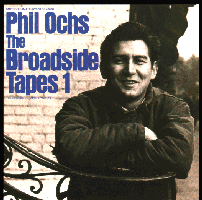
[1966]
Lyrics and Music by Phil Ochs
Testo e musica di Phil Ochs
Album: The Broadside Tapes 1 [Compilation postuma, 1989, Smithsonian Folkways]
Lyrics and Music by Phil Ochs
Testo e musica di Phil Ochs
Album: The Broadside Tapes 1 [Compilation postuma, 1989, Smithsonian Folkways]
As for the topic of this topical song: It's not just looking backward to the Spanish Civil War, and the contemporary problem wasn't just US military sales to Spain. Tourism to Franco Spain really was a crisis-of-conscience issue for mildly left-wing travelers in the 1960s: a beautiful country, and unbeatable prices, but yes, the government was still headed by Hitler's old (or oldest) ally.
Una tipica "topical song" di Phil Ochs, che però non guarda soltanto alla guerra civile spagnola, ma anche alle ben contemporanee vendite di armi alla Spagna franchista da parte degli USA. Il turismo nella Spagna franchista provocò serie crisi di coscienza nella middle class di sinistra negli USA degli anni'60: un paese bellissimo e prezzi imbattibili, ma il governo era ancora guidato dal vecchio (o dal più vecchio) alleato di Hitler.
Una tipica "topical song" di Phil Ochs, che però non guarda soltanto alla guerra civile spagnola, ma anche alle ben contemporanee vendite di armi alla Spagna franchista da parte degli USA. Il turismo nella Spagna franchista provocò serie crisi di coscienza nella middle class di sinistra negli USA degli anni'60: un paese bellissimo e prezzi imbattibili, ma il governo era ancora guidato dal vecchio (o dal più vecchio) alleato di Hitler.
Oh, say do you remember 25 years ago,
(Continues)
(Continues)
Contributed by Riccardo Venturi 2005/6/10 - 15:36
Song Itineraries:
The Spanish Civil War 1936-1939 and Franco's Dictatorship
He is my Brother
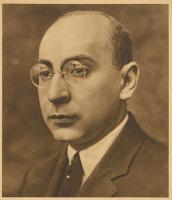
This man, who his own fatherland forgets
(Continues)
(Continues)
Contributed by Riccardo Venturi 2005/6/10 - 15:33
Kazerneplein
Anonymous
Canzone popolare olandese di protesta degli anni '60 circa.
Testo ripreso da:
http://lyrical.nl/song/33693
Testo ripreso da:
http://lyrical.nl/song/33693
Arbeiders, studenten,
(Continues)
(Continues)
2005/6/10 - 15:30
We zijn tegen schieten
[2003]
Testo e musica di Zeger e Clemens Van Herwaarden
Lyrics and music by Zeger and Clemens van Herwaarden
Testo segnalato da questa pagina
e ripreso da: quest'altra pagina.
Testo e musica di Zeger e Clemens Van Herwaarden
Lyrics and music by Zeger and Clemens van Herwaarden
Testo segnalato da questa pagina
e ripreso da: quest'altra pagina.
Bush dendert door de wereld
(Continues)
(Continues)
Contributed by Riccardo Venturi 2005/6/10 - 15:28
Die Moorsoldaten [Börgermoorlied; Das Moorlied]
![Die Moorsoldaten [Börgermoorlied; Das Moorlied]](img/thumb/c971_130x140.jpeg?1328359947)
5a. De moorsoldaten: La versione neerlandese
5a. De moorsoldaten: Dutch version
In Börgermoor in Emsland dicht bij de Nederlandse grens werden onder meer politieke tegenstanders van het naziregime, Jehova's getuigen en homoseksuelen gevangengezet. Met eenvoudig gereedschap, zoals een spade, moest men in het veen (Duits: Moor) kanalen graven en ontginningswerkzaamheden verrichten.
Om de lange werkdagen wat te verlichten zong men liederen die soms zelf gemaakt werden. Mijnwerker Hans Esser en acteur Wolfgang Langhoff waren verantwoordelijk voor de tekst van het lied over de dwangarbeid in het veen, terwijl Rudi Goguel de melodie schreef. Het lied sprak de gevangenen direct aan omdat het hun gezamenlijk lot beschreef en de hoop op een toekomst in vrijheid bezong. Op 28 augustus 1933 tijdens een ontspanningsavond voor en door gevangenen genaamd "Zirkus Konzentrazani" (Circus concentratiekamp)... (Continues)
5a. De moorsoldaten: Dutch version
In Börgermoor in Emsland dicht bij de Nederlandse grens werden onder meer politieke tegenstanders van het naziregime, Jehova's getuigen en homoseksuelen gevangengezet. Met eenvoudig gereedschap, zoals een spade, moest men in het veen (Duits: Moor) kanalen graven en ontginningswerkzaamheden verrichten.
Om de lange werkdagen wat te verlichten zong men liederen die soms zelf gemaakt werden. Mijnwerker Hans Esser en acteur Wolfgang Langhoff waren verantwoordelijk voor de tekst van het lied over de dwangarbeid in het veen, terwijl Rudi Goguel de melodie schreef. Het lied sprak de gevangenen direct aan omdat het hun gezamenlijk lot beschreef en de hoop op een toekomst in vrijheid bezong. Op 28 augustus 1933 tijdens een ontspanningsavond voor en door gevangenen genaamd "Zirkus Konzentrazani" (Circus concentratiekamp)... (Continues)
DE MOORSOLDATEN
(Continues)
(Continues)
Contributed by Riccardo Venturi 2005/6/10 - 15:20
Soldadito Boliviano [Guitarra en duelo mayor]
![Soldadito Boliviano [Guitarra en duelo mayor]](img/upl/ibanez.jpg)
[1968]
Testo di Nicolás Guillén
Musica di Harold Gramatges
Prima interpretazione di Paco Ibáñez
Guitarra en duelo mayor, meglio nota come Soldadito boliviano è sicuramente una delle più note canzoni sull'uccisione del Che Guevara, avvenuta in Bolivia il 7 ottobre 1967. Il testo è del massimo poeta cubano contemporaneo, Nicolás Guillén; fu interpretata per la prima volta da Paco Ibáñez all'Olympia di Parigi, nel dicembre del 1969. L'immagine del "Soldatino boliviano" è ripresa direttamente dal Diario de Bolivia di Ernesto Che Guevara, alla pagina del 3 giugno 1967. [Dati provenienti da: Meri Lao, Al Che, Poesie e canzoni dal mondo, Edizioni Erre Emme, 1995, pp. 158-159][RV]
Testo di Nicolás Guillén
Musica di Harold Gramatges
Prima interpretazione di Paco Ibáñez
Guitarra en duelo mayor, meglio nota come Soldadito boliviano è sicuramente una delle più note canzoni sull'uccisione del Che Guevara, avvenuta in Bolivia il 7 ottobre 1967. Il testo è del massimo poeta cubano contemporaneo, Nicolás Guillén; fu interpretata per la prima volta da Paco Ibáñez all'Olympia di Parigi, nel dicembre del 1969. L'immagine del "Soldatino boliviano" è ripresa direttamente dal Diario de Bolivia di Ernesto Che Guevara, alla pagina del 3 giugno 1967. [Dati provenienti da: Meri Lao, Al Che, Poesie e canzoni dal mondo, Edizioni Erre Emme, 1995, pp. 158-159][RV]
Soldadito de Bolivia,
(Continues)
(Continues)
Contributed by Riccardo Venturi 2005/6/10 - 14:44
Song Itineraries:
Che Guevara
Teach Peace

[1997]
Songwriter: Thomas Alan Connor and his Band
Songwriter: Thomas Alan Connor and his Band
It's hard to place a value
(Continues)
(Continues)
Contributed by Riccardo Venturi 2005/6/10 - 10:41
Sing

[2003]
Kingdoms rise and then they fall
(Continues)
(Continues)
Contributed by Riccardo Venturi 2005/6/10 - 10:39
Relevance

"Relevance" is a word used to describe things we give importance to; things we care about in our lives or concepts, ideas, thoughts.
The lyrics speak about being honest and true to your "self". We question our decisions and choices in life, rarely taking the time to trust in our own ability to know what's right for us. We question our intentions when we are unsure of results. We question others and their decisions or way of life because it is different from our own. When we look at someone of a different culture, race, religion or spiritual path what do we see? Friend, or foe? Fellow human being, or stranger? Are they capable of love - are we?
We all live in our own tiny little worlds, in amongst the people of the whole world. There is a great need for a tolerance and love on a universal level for all people, everywhere. These days there are so many forces acting against true expression... (Continues)
The lyrics speak about being honest and true to your "self". We question our decisions and choices in life, rarely taking the time to trust in our own ability to know what's right for us. We question our intentions when we are unsure of results. We question others and their decisions or way of life because it is different from our own. When we look at someone of a different culture, race, religion or spiritual path what do we see? Friend, or foe? Fellow human being, or stranger? Are they capable of love - are we?
We all live in our own tiny little worlds, in amongst the people of the whole world. There is a great need for a tolerance and love on a universal level for all people, everywhere. These days there are so many forces acting against true expression... (Continues)
When you ask your heart to feel for you
(Continues)
(Continues)
Contributed by Riccardo Venturi 2005/6/10 - 10:34
Mantra

[2003]
In a place far from heaven
(Continues)
(Continues)
Contributed by Riccardo Venturi 2005/6/10 - 10:31
L'uomo lupo

Chi mai ci salverà dall'uomo lupo
(Continues)
(Continues)
Contributed by adriana 2005/6/10 - 06:38
Song Itineraries:
AWV (AntiWar Wolves)
Radio Tindouf

SAHARAWI: IL POPOLO E LA STORIA
adattato da I Sarahawi popolo e deserto, dove si trova una versione più completa
Si veda anche http://www.saharawi.it/
Tratto dalla ricerca di
Nicola Malagoli
Il Sahara Occidentale è un territorio di circa 266000 Kmq che si affaccia sull’Atlantico per un migliaio di chilometri, confina con il Marocco, l’Algeria e la Mauritania. È in gran parte desertico, ma ricchissimo di risorse minerarie (soprattutto fosfati). Le coste sono pescosissime. I suoi confini sono convenzionali, poiché seguono in parte l'andamento dei paralleli e dei meridiani, tracciati dalle diplomazie europee in seguito alle decisioni della Conferenza di Berlino del 1884/85. Per molto tempo le popolazioni che nomadizzavano nel territorio ignorarono questi confini artificiali ma, a partire dagli inizi di questo secolo, sono diventati oggetto di un'attenta sorveglianza da parte della polizia... (Continues)
adattato da I Sarahawi popolo e deserto, dove si trova una versione più completa
Si veda anche http://www.saharawi.it/
Tratto dalla ricerca di
Nicola Malagoli
Il Sahara Occidentale è un territorio di circa 266000 Kmq che si affaccia sull’Atlantico per un migliaio di chilometri, confina con il Marocco, l’Algeria e la Mauritania. È in gran parte desertico, ma ricchissimo di risorse minerarie (soprattutto fosfati). Le coste sono pescosissime. I suoi confini sono convenzionali, poiché seguono in parte l'andamento dei paralleli e dei meridiani, tracciati dalle diplomazie europee in seguito alle decisioni della Conferenza di Berlino del 1884/85. Per molto tempo le popolazioni che nomadizzavano nel territorio ignorarono questi confini artificiali ma, a partire dagli inizi di questo secolo, sono diventati oggetto di un'attenta sorveglianza da parte della polizia... (Continues)
2005/6/9 - 22:51
La guerra per amore
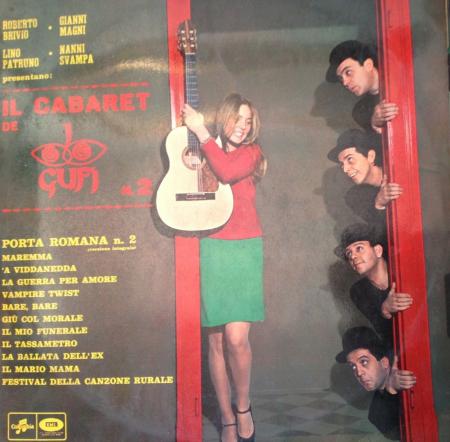
Di Gabellone-Patruno, in "il Cabaret de i Gufi N.2", EMI italiana, 1967
È bello morire in guerra
(Continues)
(Continues)
Contributed by Piersante Sestini 2005/6/9 - 22:04
L'Internationale: Probably the most complete page in the world on the workers' world hymn, which also has a strong antimilitarist element. The page contains up to now over 100 versions and translations.
Riccardo Venturi 2005/6/9 - 20:58
La ballata delle rivolte

Testo e musica di Germano Bonaveri
Quando Lada scappò dalla guerra, a Sarajevo, era una bimba. Lada è mia sorella, lo è diventata. Lada è stata comunque fortunata: mentre guardiamo la televisione e inorridiamo per la ferocia dell'uomo, bambini muoiono imbracciando il fucile, quando dovrebbero sorridere abbracciandosi in un girotondo. C'è da avere vergogna del genere umano, a volte.
Quando Lada scappò dalla guerra, a Sarajevo, era una bimba. Lada è mia sorella, lo è diventata. Lada è stata comunque fortunata: mentre guardiamo la televisione e inorridiamo per la ferocia dell'uomo, bambini muoiono imbracciando il fucile, quando dovrebbero sorridere abbracciandosi in un girotondo. C'è da avere vergogna del genere umano, a volte.
Una strana luce nel suo cielo
(Continues)
(Continues)
Contributed by adriana 2005/6/9 - 19:07
Song Itineraries:
Balkan Wars of the 90's
Bomba chiama bomba
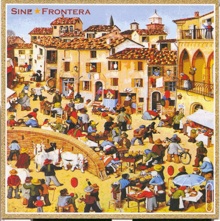
2003
Sine Frontera
Sine Frontera
Piange Marlene, Betty e Marlowe
(Continues)
(Continues)
Contributed by adriana 2005/6/8 - 16:27
Comme toi
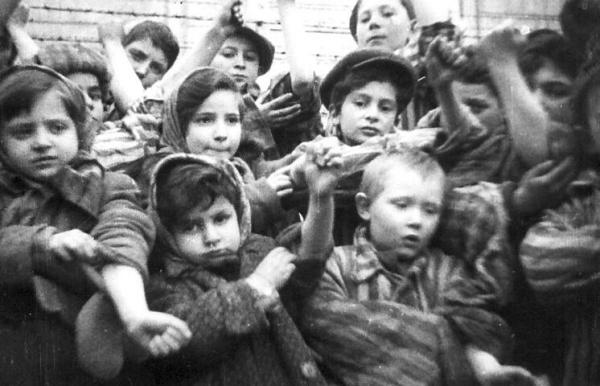
[1982]
Dall'album "Minoritaire"
Dall'album "Minoritaire"
Elle avait les yeux clairs et la robe en velours
(Continues)
(Continues)
Contributed by myname 2005/6/8 - 12:55
Song Itineraries:
Extermination camps
La guerra è finita

2003
Sine Frontera
Sine Frontera
Ho ancora la foto che mi hai regalato
(Continues)
(Continues)
Contributed by adriana 2005/6/8 - 09:32
Song Itineraries:
Anti War Love Songs
Birkenau

Birkenau
(Continues)
(Continues)
Contributed by adriana 2005/6/8 - 08:53
Song Itineraries:
Extermination camps
×
![]()


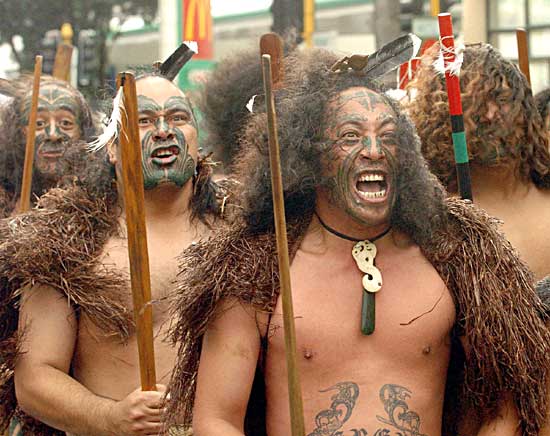
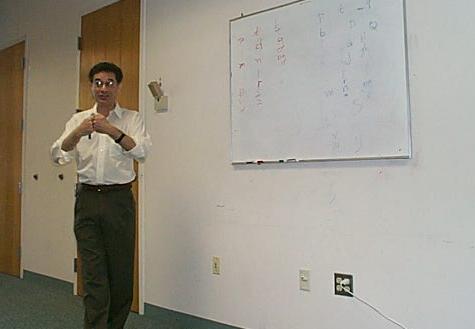

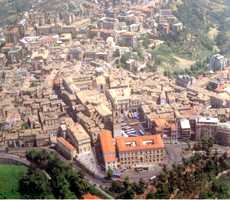
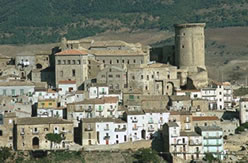
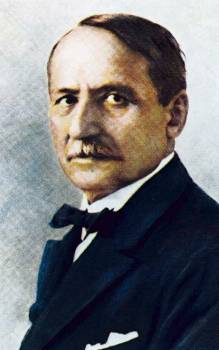
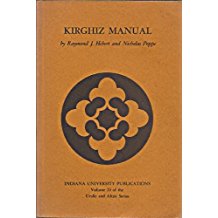

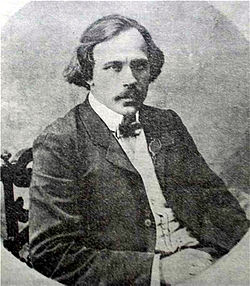
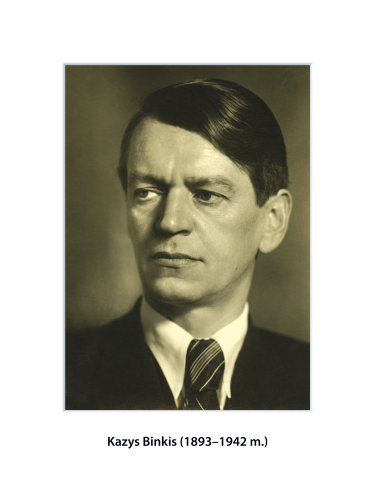
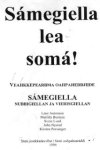
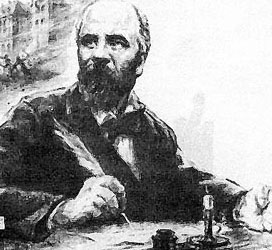
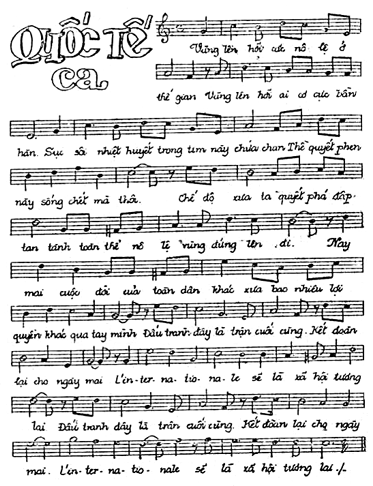

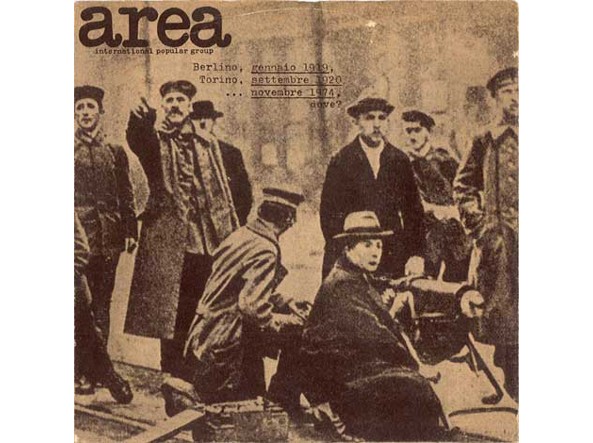
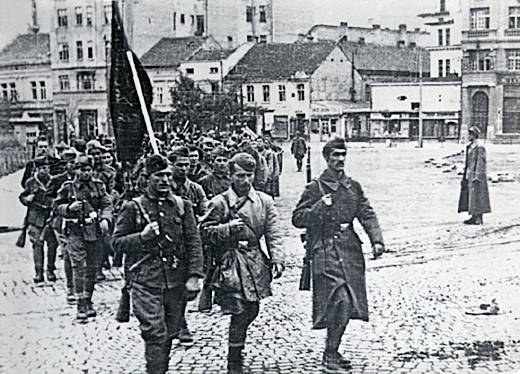
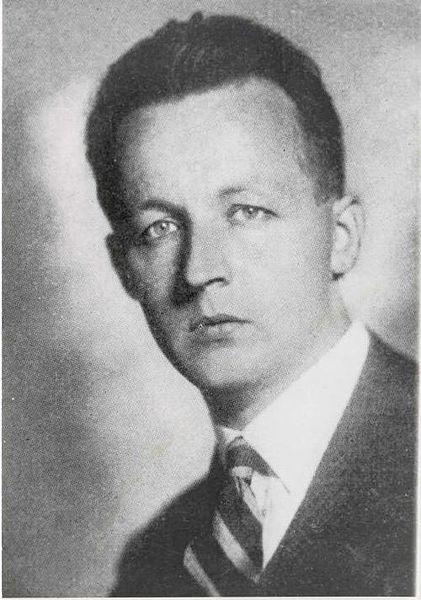
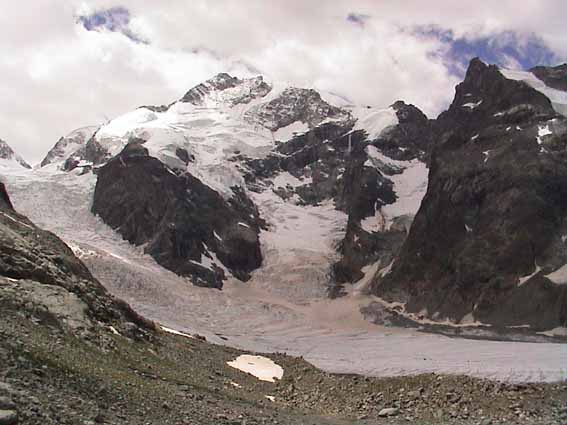
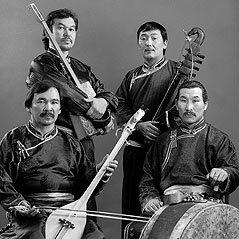

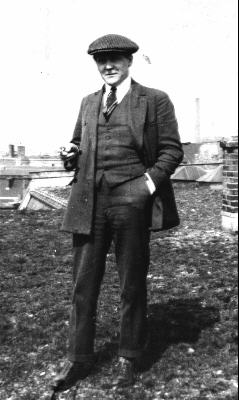

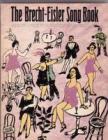
La versione filippina più diffusa dell'Internazionale è senz'altro quella redatta nel 1969 a cura del Partito Comunista delle Filippine (Communist Party of the Philippines, CPP). Rispetto alle altre versioni (q.v.) presenta la caratteristica di essere maggiormente basata sull'originale francese di Eugène Pottier: cantata in due strofe più il ritornello, si tratta praticamente della traduzione del testo originale. Un'altra caratteristica della versione è quella di essere redatta in tagalog classico, che presenta leggere differenze con la versione attuale del Filippino comune (Pilipino).
The most widely known Pilipino version of the Internationale is no doubt the version prepared in 1969 by the Communist Party of the Philippines (CPP). In comparison with other versions (q.v.), it is mostly based on Eugène Pottier's original French lyrics... (Continues)